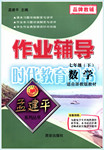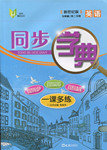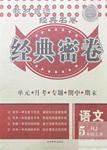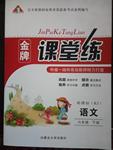
While parents, particularly mothers, have always been attached to their infants (婴儿), societal conditions frequently made this attachment difficult to maintain (保持). First of all, the high infant death rate in the premodern times meant that such attachments often ended in hopelessness. Perhaps to prevent the sadness that infant death caused, a number of societal practices developed which worked against early attachment of mother and child.
One of these premodern attachment-discouraging practices was to leave infants unnamed until they had survived into the second year. Another practice that discouraged maternal (母亲的) attachment was tightly wrapping (包裹) infants. Wrapping effectively prevented the close physical interactions like stroking (抚摸) and kissing that are so much a part of modern mothers' and fathers' affection for their infants.
A third practice which had the same distancing effect was wet-nursing. Breast-feeding (母乳哺育) was not popular among the well-to-do in the early modern times; infants were often fed by wet nurses hired for the purpose. In some places, such as nineteenth-century France, city infants were sent to wet nurses in the country. Often a wet nurse would feed her own child first, leaving little milk for the city infant—who, in many cases, died. In Rouen, the death rate for children sent to a wet nurse was 35 percent.
68. Babies were unnamed until they were two so that _______.
A. an old social custom could be kept up B. maternal attachment could be maintained
C. they could have better chances to survive D. their parents would not be too sad if they died
69. Why were babies wrapped?
A. To protect them from the cold. B. To distance their mothers from them.
C. To make them feel more comfortable. D. To make it easy for their mothers to hold them.
70. Wet nurses were women who________.
A. babysat city infants B. fed babies of other families
C. sent their babies to the country D. failed to look after their babies
71. Which is the best title for the passage?
A. Societal Conditions in Premodern Times
B. Practices of Reducing Maternal Attachment
C. Poor Health Service and High Infant Death Rate
D. Differences between Modem and Premodern Parents
68---71 DBBB
68.解析:这是一道判断题。从第一段“Perhaps to prevent the sadness that infant death caused”,可知答案是D。
69.解析:这是一道细节推断题。从第二段“Another practice that discouraged maternal attachment was tightly wrapping infants.”可知,wrapping的目的是减少母亲的接触,让母亲远离孩子一些。因此选B。
70.解析:这是一道细节推断题。从最后一段“infants were fed by wet nurses hired”可知,wet nurses是喂养别人的婴儿的女人。
71.解析:这是一道主旨题。文中讲了各种pre-modern attachment-discouraging practices的方法,因此,title应是B。


 作业辅导系列答案
作业辅导系列答案 同步学典一课多练系列答案
同步学典一课多练系列答案 经典密卷系列答案
经典密卷系列答案 金牌课堂练系列答案
金牌课堂练系列答案科目:高中英语 来源:四川省南充高中2012届高三第一次月考英语试题 题型:050
| |||||||||||||||||||||||||||||||||||||||||||||||||||||||||||
查看答案和解析>>
科目:高中英语 来源: 题型:阅读理解
Julie Zingeser texts at home,at school,in the car while her mother is driving.She texts during homework, after pompon(舞绣球)practice and as she walks the family dog.She takes her cellphone with her to bed.Every so often,the hum(嗡嗡声)of a new message wakes the Rockville teen from sleep.“I would die without it,”Julie,15,says of her text life.
This does not surprise her mother, Pam, who on one recent afternoon scanned the phone bill and found her youngest daughter, in one busy month,had sent and received 6,473 text messages.For Pam Zingeser, the key problem is not cost—it's$30 a month for the family’s unlimited texting plan—but the effects of so much messaging.Pam wonders:What will this generation learn and what will they lose in the endless stream of sentence fragments(碎片),abbreviations and emoticons?
Parents, educators, and researchers are sharing similar concerns as text messaging has exploded across the formative years of the nation's youngest generation. Teens now do more texting on their cellphones than calling. Nationally, more than 75 billion text messages are sent a month, and the craziest texters are 13 to 17. Teens with cellphones average 2,272 text messages a month, compared with 203 calls, according to the Nielsen Co.
The tap,tap,tap of connectivity can benefit teenagers at a time in life when they cannot always get together in art unscheduled way.Texters are “sharing a sense of (69题) ,”said Mimi Ito of the University of California at Irvine.For families, the text world call bring convenience as never before in arranging tides,doing errands(差事),letting parents know of changing plans.
But some experts say there are downsides,starting with declines in spelling,word choice and writing complexity.Some suggest too much texting is related to an inability to focus.
1.The first paragraph mainly tells us that Julie Zingeser __________
A.joins in all kinds of activities
B.sends and receives texts all the time
C.does nothing besides texting
D.does everything by texting
2.Pare disapproves of her daughter's texting because she worries that it may be ________
A.a waste of money
B.a waste of time
C.harmful in every way
D.bad for language learning
3.The underlined phrase "the formative years" in the 3rd paragraph refers to the period when ________
A.someone's character develops
B.someone experiments with new things
C.someone learns to speak
D.someone grows from baby into adult
4.The word missing in the blank in the 4th paragraph must be _______
A.independence B.overexcitement
C.co-presence D.non-attendance
5.The original title of the article should be: “6,473 Texts a Month, But _______”.
A.at What Cost? B.What for?
C.Who Cares? D.How Could lt Be?
查看答案和解析>>
湖北省互联网违法和不良信息举报平台 | 网上有害信息举报专区 | 电信诈骗举报专区 | 涉历史虚无主义有害信息举报专区 | 涉企侵权举报专区
违法和不良信息举报电话:027-86699610 举报邮箱:58377363@163.com